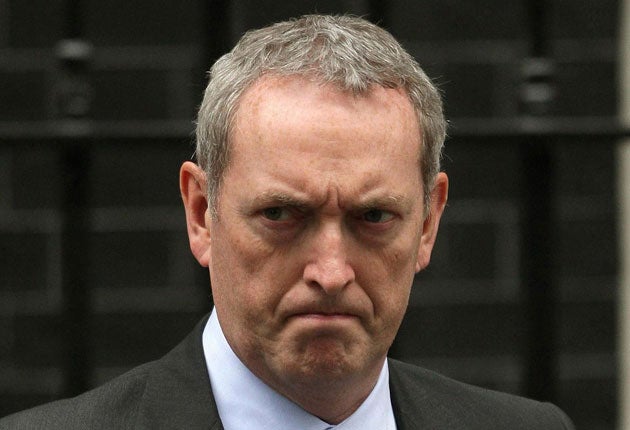Hutton fears nuclear industry has lost confidence of the public

Your support helps us to tell the story
From reproductive rights to climate change to Big Tech, The Independent is on the ground when the story is developing. Whether it's investigating the financials of Elon Musk's pro-Trump PAC or producing our latest documentary, 'The A Word', which shines a light on the American women fighting for reproductive rights, we know how important it is to parse out the facts from the messaging.
At such a critical moment in US history, we need reporters on the ground. Your donation allows us to keep sending journalists to speak to both sides of the story.
The Independent is trusted by Americans across the entire political spectrum. And unlike many other quality news outlets, we choose not to lock Americans out of our reporting and analysis with paywalls. We believe quality journalism should be available to everyone, paid for by those who can afford it.
Your support makes all the difference.Britain's nuclear operators face the gravest challenge for years to persuade the public that new power plants will be safe in the wake of the Fukushima disaster, the new head of the industry admitted yesterday.
Lord Hutton, chairman of the Nuclear Industry Association, said the Fukushima disaster had "changed the game" for atomic energy and called for a new approach around the safety of nuclear generation.
He was speaking as the industry released new data showing public confidence in nuclear power had declined for the first time in five years in the wake of the meltdown in Japan.
Just under 30 per cent of those questioned in an opinion poll were favourable towards nuclear power – down four points in six months, while 28 per cent now oppose all new nuclear build.
In an interview with The Independent, Lord Hutton, the ex-Labour cabinet minister, said concerns on civil nuclear power were understandable and it was imperative the industry communicated better with the public.
"The real issue for Fukushima is the safety case, which I think has to be gone through very carefully again," he said.
"We really do have to understand precisely what happened and mitigate as much of that risk as possible in the UK context. We have got a heavy obligation to be open and transparent with the public about the safety case for nuclear in the UK. This is the absolute precondition for progress."
He said there was more understanding of the economic case for nuclear – the lowest price for clean energy.
"We know it can improve Britain's energy security and contribution to climate change. But people still say, is it safe is it secure?... The industry is very aware of that challenge. Fukushima has changed the game."
He believed there had been a change in opinion about nuclear power before Fukushima, with many in the green movement reluctantly accepting it was necessary to combat global warming.
"I think it's a very interesting debate amongst people who would describe themselves as Greens and there is a strong divergence of views," he said. "I don't think any of them like it but they realise that there is not another show in town that's really likely to address the issue of how much carbon we're chucking into the atmosphere. If you want to meet the climate-change challenge and spread development and growth between economies you're going to need clean energy."
He said it was important for British industry to be at the forefront of the technology and backed plans for a new MOX fuel plant at Sellafield. He said he wanted to see a full spectrum capability in UK nuclear on both the fuel cycle and the power-generation side.
"People often just think about nuclear in terms of power generation, I think the fuel including reprocessing is a very important aspect and I want Britain to be part of that," he said.
"Nuclear is going to happen around the world – lets not be in any doubt about that. And Britain's expertise on the fuel cycle should be and I hope will be part of that... and I hope we'll be at the forefront on nuclear technology."
But he said before this could happen much more work needed to be done.
"The industry faces a very big challenge in responding to Fukushima and we will have to use all of the tools in the box to do so," Lord Hutton said.
Join our commenting forum
Join thought-provoking conversations, follow other Independent readers and see their replies
Comments